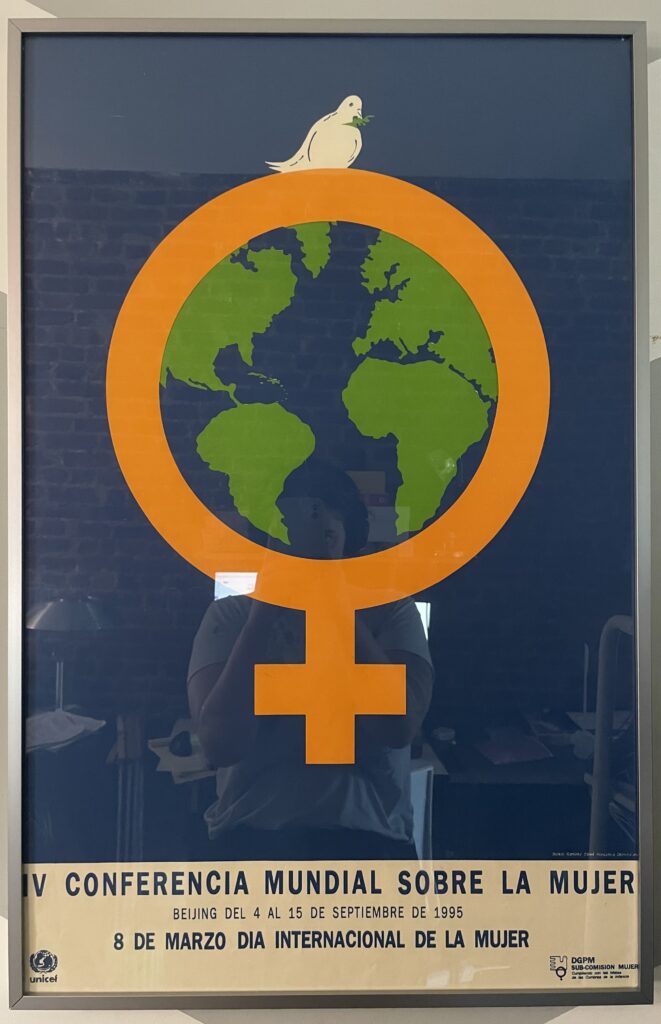In his chapter “Normative and Theoretical Foundations on Human Rights” Anthony Langlois sets out to explain the philosophical and political frameworks which have established conceptions of individual human rights through rational rights based on Christian Theology in the pre-enlightenment period, natural rights conceived of in the Enlightenment, and liberal political rights of the modern era. Throughout this text, Langlois defines Human Rights as a limit on state power to protect individual liberties (23). Langlois explains that without the religious philosophical foundation, philosophical justifications for the modern concept of human rights remains murky. He states that in the modern era, justification for our conception of Human Rights may exist through legal positivism, i.e. that we have human rights because we have legal rights. Langolis cautions against over-reliance on this concept means that Human Rights do not exist everywhere, only in the liberal societies that have laws protecting them. Langlois goes on to list other modern foundations for human rights, such as human dignity, autonomy, needs, and consensus.
Langlois also examines early and modern critiques of human rights, touching briefly both on, among other things, Marx’s critique of the philosophy of human rights and on the anti-imperialist critique of the liberal project to spread human rights. These critiques and Langlois’ presentation of them will be the focus of the remainder of my response. Langlois characterizes Marx’s critique of Human Rights as the concern that “rights to liberty, property, and personal security gave the entrepreneur a relatively free hand in his capitalist occupations.” (15) Langlois never addresses this concern, stating only that as rights laws and logic progressed, philosophers “became ambivalent about the idea.” (15) Langlois does not address Marxist concerns about human rights again, including as he discusses anti-imperialist critique of the human rights philosophy. Langlois suggests that the anti-imperialist is only based on critiques of “cultural” imperialism (20). In doing so, he ignores the actual context of the liberal campaign for the expansion of human rights, which is used to justify military intervention that, in the long run, supports the capitalist expansion of labor markets. His argument that liberalism is an “adequate safeguard against imperialism,” makes little sense. As detailed by Goodfriend, the expansion of the human rights project is intentionally apolitical as “professional human organizations’ legitimacy was grounded in their perceived neutrality.” Still, a quick look at modern concerns, such as the United States approach to Venezuela, Argentina, or Cuba demonstrates that the language of Human Rights and the work of these ‘apolitical’ groups should also be characterized as an anti-communist neoliberal political project in which American corporations have the most to gain.

In 2021, the Marxist critique of the philosophy of Human Rights also still holds water. What does it mean to have rights based on the freedom to meet needs if workers in liberal countries are frequently unable to meet those needs? While a state may embrace the right to equality in counting every vote the same, most people do not experience equality and are not treated equally. Langlois is right to state that rights expansion is a liberal project, but we must contextualize this- what is the larger liberal project? Does it support our needs and those of our communities, or does it support the expansion of markets above all else? If our rights protect us against the abuses of the state, what protects us from the abuses of the private companies the state empowers?
Works Cited
Goodfriend, Hilary. 2019. A Hundred Years of Solidarity. Jacobin.
Langlois, Anthony J. 2016. “Normative and Theoretical Foundations of Human Rights.” Pp. 11-25 in Human Rights: Politics and Practice. Michael G. Goodhard, Ed. Oxford: Oxford Press.



2 replies on “On “Normative and Theoretical Foundations on Human Rights” and “A Hundred Years of Solidarity””
I agree that we really are continuing to see anti-communist imperialist endeavors by the US, and that it is not just a historical element of US imperialism. Given that, you are right to point out that the context in which the liberal push for human rights is taken place should be surfaced and critiqued. Is that beautiful poster in your living space?
It is!